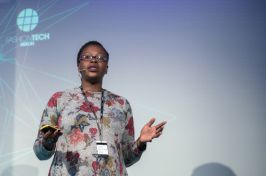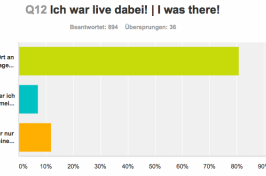Is the internet a tool for colonialism? The four participants of the “Digital Colonialism: a global overview” argue that digital developments can also be an instrument for control and domination.
On the surface, the internet can be seen as the great equaliser. It enables cheaper communication and the flow of information for everyone, regardless if you're rich or poor, live in Nigeria or in France. But this vision is romanticised, argue speakers Nanjira Sambuli, Alan Mills, Joana varon and Renata Avila. The internet also causes political dependencies, or rather “digital colonialism”.
“I see it as a new form of subjugation” says Nanjira Sambuli, lead researcher at iHUB. She sees corporations like Google, Facebook and Twitter abusing the freedom of the internet. They are not interested in freedom and rather seek to strengthen their economic position and to control their users. Western companies are building digital infrastructures in developing countries as patronising gestures and contrary to the will of the people. Countries such as India are resisting and blocking projects like Facebook's Internet.org. “Too many corporations are developing technologies for us – not with us” criticises Nanjira Sambuli.
The domination of digital colonialism starts in with language. While the majority of the web's content is in English, only a small percentage of the world population speak English as a first language. Also, people from so-called “developing countries” are almost always regarded as consumers and hardly ever as creators. Nanjira Sambuli explains that due to costs, mobile phones are more widespread than laptops in Africa and South America, but their small screens are not suitable for content development and production. In the end, the smartphone is the benchmark for a country's development and, at the same time, its subordination and dependency.
Image: re:publica/Jan Zappner (CC BY 2.0)





